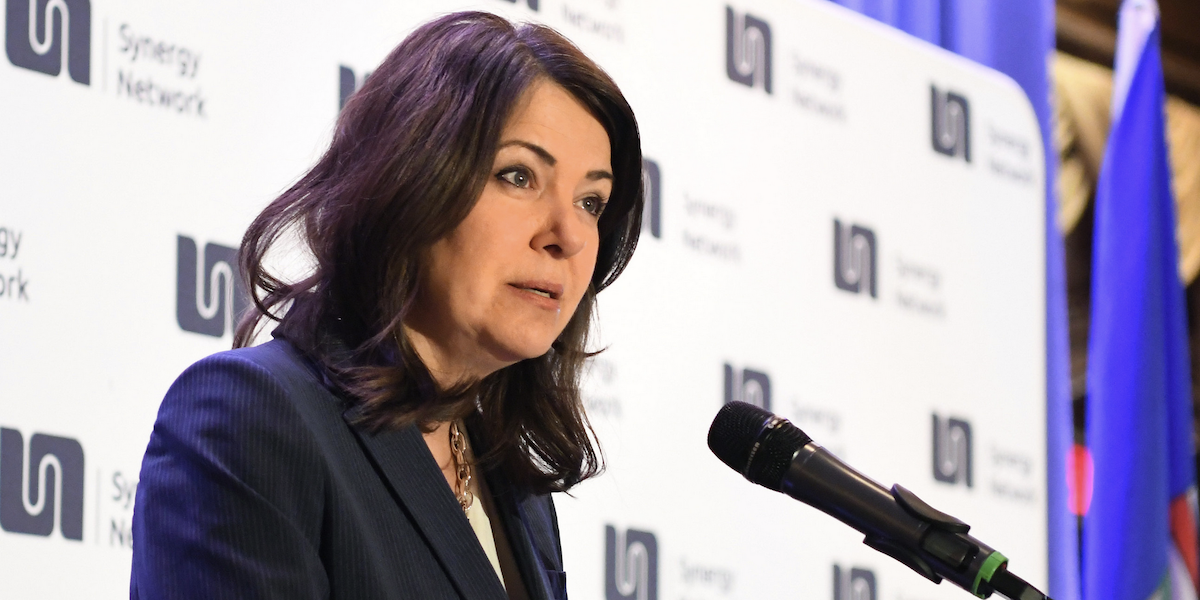About 200,000 Albertan workers will be negotiating new contracts this year—80 per cent of which are unionized public-sector workers.
But the Alberta government intervention in the form of secret mandates legislated through the Public Employer’s Sector Act, has bogged down collective bargaining.
Government intervention in public-sector bargaining is not new—before the early 2000s the Charter of Rights and Freedoms’ did not protect the right to strike or collective bargaining.
This changed in 2007 after the Health Services and Support-Facilities Bargaining Association challenged the BC government, asserting that “freedom of association protects the capacity of members of labour unions to engage in collective bargaining on workplace issues.”
Then in 2015, the Supreme Court extended protections from interference to strike action after it was brought forward by the Saskatchewan Federation of Labour.
Although these decisions are a win for labour unions and workers, government intervention has not slowed down.
A research study from Parkland Institute that was released earlier this year, revealed that the rate of government interventions in Canada has tripled since 2000 despite the Supreme Court of Canada’s decisions. Governments have simply adapted new methods of intervention.
“We specifically looked at Alberta and we found that over time they have indeed changed what they’ve been doing, and they become much more hands-on with it—much more aggressive with how they’re intervening and the various ways that they’re going about it,” said Susan Cake, co-author of the Parkland Institute study.
Whether it’s legislatively or non-legislatively, these interventions have been evolving and finding new ways to disrupt public-sector collective bargaining.
‘Secret mandates’ interfere with transparent and fair bargaining
The Alberta government’s implementation of “secret mandates” through the Public Sectors Employers Act (PSEA) sets a precedent for bargaining even before the two parties meet.
“When we talked to negotiators, they said that they always knew that there was somebody else in the room,” said Cake. “They said it was hard because it seemed like it stalled out a lot of the negotiations as well. Progress wasn’t really made until everything was moved over the mediation.”
Transparency in collective bargaining is almost non-existent, undermining the whole process as if there was a “ghost at the table.”
Gil McGowan, the president of Alberta Federation of Labour (AFL), stated that this is a deliberate attempt by the current government to work around recent Federal Supreme Court decisions on labour relations.
“When the parameters are already set in advance, you can’t have real bargaining—real negotiation requires compromise and movement. But the approach that’s been adopted by the UCP in terms of using binding secretive directives is the opposite of that,” said McGowan.
Under the PSEA, employers were legally prohibited from disclosing what the government mandates entail. In most cases, employer negotiators rarely share all the information regarding their mandate.
However this made it difficult to determine which party the mandates came from—if the mandate came from the employer, which makes bargaining items more negotiable, or if they came from the government.
Then in 2014, the formation of the Provincial Bargaining and Compensation Office (PBCO. While the PBCO was first created under the New Democratic Party, it was later bolstered by the United Conservative Party. The PBCO oversees the implementation of these secret mandates at over 250 public-sector bargaining tables.
“Instead of creating an atmosphere in which the parties can have reasonable discussions and negotiations on how to address things like the dramatically rising cost of living and the unprecedented level of inflation, they’re setting things up for impasse and confrontation,” said McGowan.
Cake added that these secret mandates have broken down relationships between unions and employers.
“When you hollow out the meaningfulness of the first step of negotiating by having things like secret mandates, then it’s almost like taking the first step away,” said Cake.
“If you’re delaying bargaining so much and you’re putting, and people just feel like it’s fruitless, they’re going to start moving it down the line—so if you get to mediation faster, then you technically get to a position where there could be a lockout or a strike faster,” Cake added.
Likelihood of strike action and labour stoppages to come
For public-sector collective bargaining, 2024 will be a historic and critical time for labour relations. At a time where the cost of living has drastically increased while public-sector wages have remained stagnant, McGown highlighted that public-sector workers would need to see a wage increase of 21 per cent or more in upcoming contracts.
AFL’s calculations take into account cumulative inflation over the last four years.
“If the secret mandates—once again, I stress that they’re secret, so we don’t know what they’re — if they don’t come close to that figure, then the chances are high that there will be major strikes in Alberta,” said McGowan.
Both Cake and McGowan have stated that strike action will likely take place.
“It’s pretty clear to us that the secret bargaining mandates handed down by the UCP government under the Public Sector Employers Act are never close to that number,” said McGowan.
“By sticking to this approach of using secret mandates and restricting the ability of employers to negotiate outside of that box at a time of unprecedented inflation and declining real wages, the government is setting a collision course with more public workers and increasing the likelihood of major strikes,” McGowan added.



